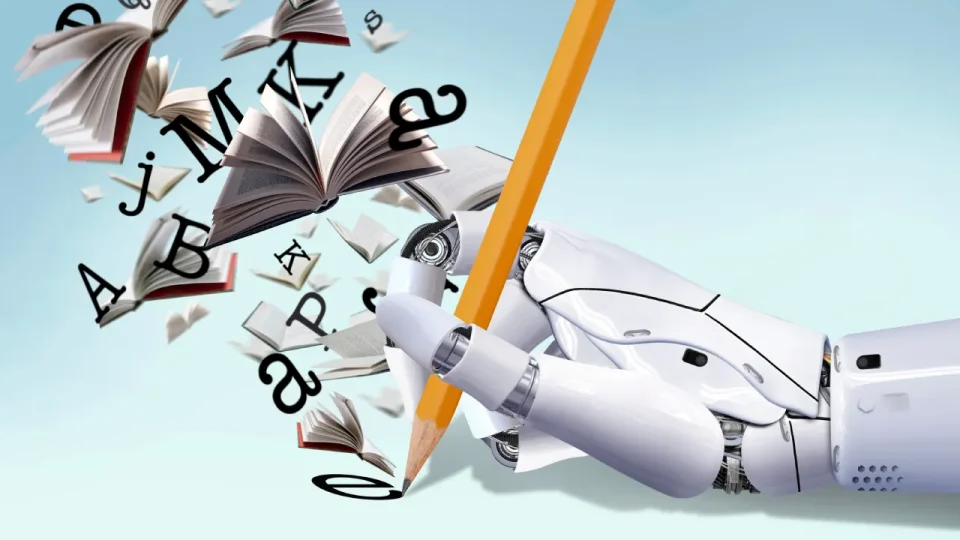Amazon Won’t Remove Books Listed Under a Real Author’s Name But Allegedly Written With AI

Journalist Jane Friedman says her name is being used to sell books written with AI on Amazon, prompting concerns over author verification.
Jason Nelson•
It may be a real-life case of AI coming to take our jobs—if not our identities. Journalist, author, and professor Jane Friedman reported on Monday that Amazon has refused her request to remove books falsely attributed to her from its website, in part because she did not hold a trademark to her own name.
As an author who specializes in helping other writers get published, Friedman has amassed a solid following for a number of books, including "The Business of Being a Writer," "What Editors Do," and "Publishing 101." As an author who focuses on helping other writers get published, she recently noticed a number of new titles on similar topics: "Your Guide to Writing a Bestseller eBook on Amazon," "Publishing Power: Navigating Amazon's Kindle Direct Publishing," and "Promote to Prosper: Strategies to Skyrocket Your eBook Sales on Amazon."
These titles, attributed to what appeared to be another "Jane Friedman," were for sale on Amazon. Curious, she clicked the author’s name, and the books appeared alongside her books—the same related results shown when viewing Friedman’s “The Business of Being a Writer.”
"As of today, there are about half a dozen books being sold on Amazon, with my name on them, that I did not write or publish," Friedman said. "Some huckster generated them using AI."
As of today, there are about half a dozen books being sold on Amazon, with my name on them, that I did not write or publish. Some huckster generated them using AI. This promises to be a serious problem for the book publishing world. https://t.co/YXcMlJeTMV
— Jane Friedman (@JaneFriedman) August 7, 2023
"This promises to be a serious problem for the book publishing world," she added.
This is only the most recent challenge Amazon faces related to AI-generated publications, as it meanwhile tries to deal with a spate of fake and potentially dangerous travel guides.
“I did file a report with Amazon, complaining that these books were using my name and reputation without my consent,” Friedman wrote on her official website. Amazon’s response, she said, was to ask for “any trademark registration numbers that relate to your claim.”
Friedman said that when she replied that she did not have a trademark for her name, Amazon closed the case and said that the books would not be removed from the site.
"It falls on me, the author—the one with a reputation at stake—to get these misleading books removed from Amazon," Friedman said. "I’m not even sure it’s possible."
"I don’t own the copyright to these junk books. I don’t exactly 'own' my name either—lots of other people who are also legit authors share my name, after all," she continued. "So on what grounds can I successfully demand this stop, at least in Amazon’s eyes? I’m not sure."
In her post, Friedman said she does not care about her real books being pirated.
“But here’s what does rankle me,” she wrote. “Garbage books getting uploaded to Amazon where my name is credited as the author. Whoever’s doing this is obviously preying on writers who trust my name and think I’ve actually written these books. I have not.”
Friedman also said that the AI-generated books were listed on her Goodreads profile.
“A reasonable person might think I control what books are shown on my Goodreads profile, or that I approve them, or at the very least I could have them easily removed,” Friedman wrote. “Not so.”
She later reported that they had been removed.
In response to Friedman’s tweets, the Author’s Guild, which Friedman is a member, said it would take up the matter with Amazon.
“As a member of the Authors Guild, we can advocate on your behalf and are reaching out to senior management immediately to let them know that these works are an attempt to trade off your brand and must be removed as infringements of the Lanham Act,” the organization tweeted.
@JaneFriedman As a member of the Authors Guild, we can advocate on your behalf and are reaching out to senior management immediately to let them know that these works are an attempt to trade off your brand and must be removed as infringements of the Lanham Act.
— The Authors Guild (@AuthorsGuild) August 7, 2023
In May, film and television productions ground to a halt when the members of the WGA went on strike after negotiations with the Alliance of Motion Picture and Television Producers collapsed. The use of AI for writing new scripts was a key sticking point. In July, the Hollywood machine froze entirely when 160,000 members of SAG-AFTRA also went on strike after their negotiations with the AMPTP collapsed. The critical item? Artificial intelligence.
Like the striking WGA and SAG-AFTRA members, Friedman is calling for guardrails on generative AI.
"Amazon and Goodreads, I beg you to create a way to verify authorship, or for authors to easily block fraudulent books credited to them," she wrote. "Do it now, do it quickly."
Amazon was unable to provide a response to an inquiry from Decrypt prior to publication.
Friedman, who is also a University of Virginia professor and host of the Great Courses class "How to Publish Your Book," also declined Decrypt’s request to comment further on the matter.
As of this writing, the fake books are now listed as "temporarily out of stock," and the linked author page no longer includes Friedman's real titles.


